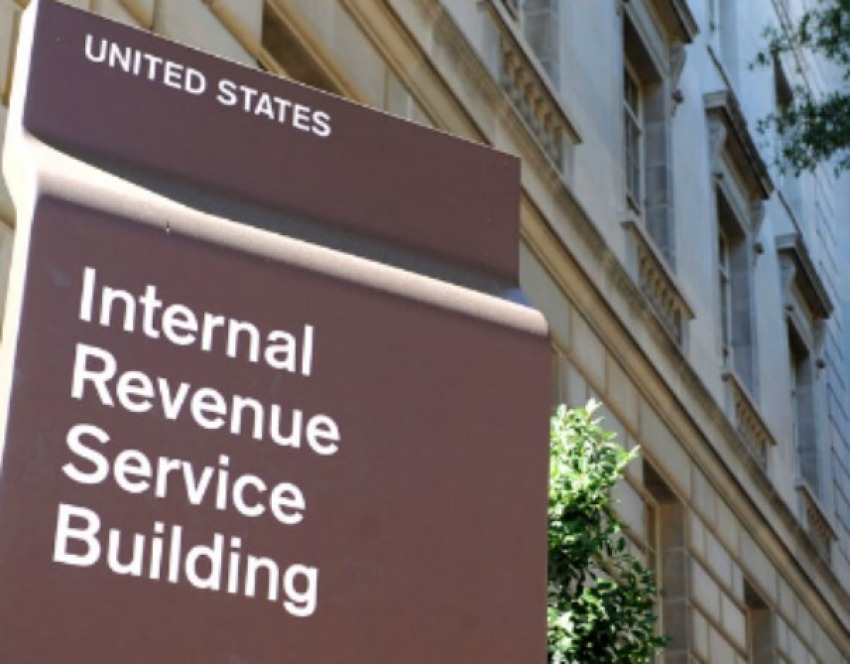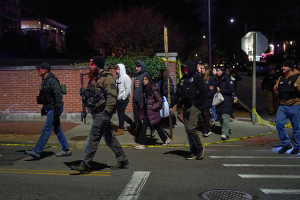Conservative Group Estimates Over $80K Loss Due to IRS Targeting; Judge Throws Out Lawsuit, Citing No Ongoing Controversy

In interviews with The Christian Post, leaders of organizations whose lawsuits against the Internal Revenue Service was dismissed claimed their fundraising and advocacy efforts were harmed by the IRS harassment, and other conservative groups were effectively abolished by the IRS targeting.
Last Wednesday, U.S. District judge Reggie Walton dismissed the cases against the IRS filed by conservative political advocacy groups True The Vote, Inc., Linchpins of Liberty and several other groups. The groups sued claiming the IRS illegally targeted them because of the nature of their political speech and knowingly stalled the approval of the group's essential tax-exempt statuses for a multitude of years.
Although it took over three years for many of the groups to get their statuses, Walton dismissed both cases calling them "moot" because the IRS eventually granted tax exempt status, which was the main controversy of the case. Without an ongoing controversy, Walton wrote, his court does not have authority to decide the case.
Linchpins of Liberty President Kevin Kookogey told The Christian Post that Walton missed the larger issue in the case, which is the IRS' pattern of targeting conservative groups for an "unlawful" delay of tax-exempt status. Kookogey said that for many of the groups involved, status was not granted until the IRS finally had to "submit something under oath." Kookogey said Linchpins of Liberty plans to appeal the decision.
Kookogey added that the multi-year delay in status put these groups in an bind they were incapable of overcoming as they needed tax-exempt status to guarantee donors a tax write-off for their donations. Kookogey said many other groups that have faced the same issue have not been able to survive the wait.
"We were singled out, I was, and 41 other groups, involved in this particular case, singled out not for legitimate reasons but based upon the content of our speech and our political and religious views. That is the violation. It doesn't matter that three years later our status was granted," Kookogey said. "The judge seems to think, for example, that if a lifeguard throws a life preserver to a swimmer that has already drowned, that's somehow sufficient, but it doesn't raise the dead and that is what has happened here."
When True The Vote, an offshoot of the Tea Party affiliated King Street Patriots, filed an application to be a 501(c)(3) tax-exempt organization in the summer of 2010, the group was told their application would only take a couple weeks and they began fundraising and looking for donors, True The Vote Communications Director Logan Churchwell told The Christian Post.
While True The Vote was waiting for their tax-exempt status to be approved, Churchwell said some donors were pledging to give to True the Vote, while others were deterred by the fact that the group did not have tax-exempt status. But as the group waited for its tax-exempt status to be approved, the group had to give back many of the donations to donors that needed to see the proof they could deduct their donation. Churchwell also said that the delay affected a large grant that would have been given to True The Vote but did not specify the amount. Churchwell said the group estimates that the total monetary damage due to the prolonged wait for status approval was about $80,000.
"That is a very conservative estimate because we are not trying to sue the IRS to try and get a big payday here," Churchwell said.
True The Vote is currently weighing its options on an appeal, Churchwell said.
The implications that the three-year wait for status had on Linchpins of Liberty and on Kookogey's own personal life were large, he said.
Kookogey said that Linchpins of Liberty lost a $30,000 launch grant that was promised upon getting status. However, the status was delayed so long that the grant was pulled. He also said that he was unable to fundraise because he couldn't assure donors that they would get a tax deduction.
"So, it crushed my organization. On top of that, I actually lost business," Kookogey said.
Churchwell said the most important impact of the dismissals will be to discourage potential future conservative groups, knowing the difficulties the IRS could give them. Churchwell said that's why True The Vote's included in its lawsuit a request for the judge to issue an order to tell the IRS that it cannot build this type of scheme again. However, Churchwell said Walton ruled that order was unnecessary because the IRS claims that it no longer targets conservative groups.
"It's not so much about our case as it is could this happen again because right now we don't see any protection against it. There is no code that you can point to that says 'don't ever do this again,'" Churchwell said. "What about the chilling effect of people looking at our case and saying 'we are not even going to try to apply.' That's the real chilling effect."
Ken Blackwell, senior fellow for family empowerment at the Family Research Council and a board director at National Taxpayers Union, told The Christian Post that although the he feels that Walton's decision was a politically correct one, because the case's main issue was technically resolved, the decision missed an opportunity to investigate, in more detail, the actions of the IRS and the impact that they have on upstart conservative groups.
"I think it was politically correct in that what [the groups] were initially pursuing in their status had been resolved but I think that this is a missed opportunity to dig deeper into the fact that they are using the IRS as a political tool," Blackwell said. "We should not be discouraged by this unfortunate decision about the behavior of the IRS by a federal judge but be be thankful that they are sounding the alarm for this activity. Surely, there is a way that we can win in forcing transparency."



























